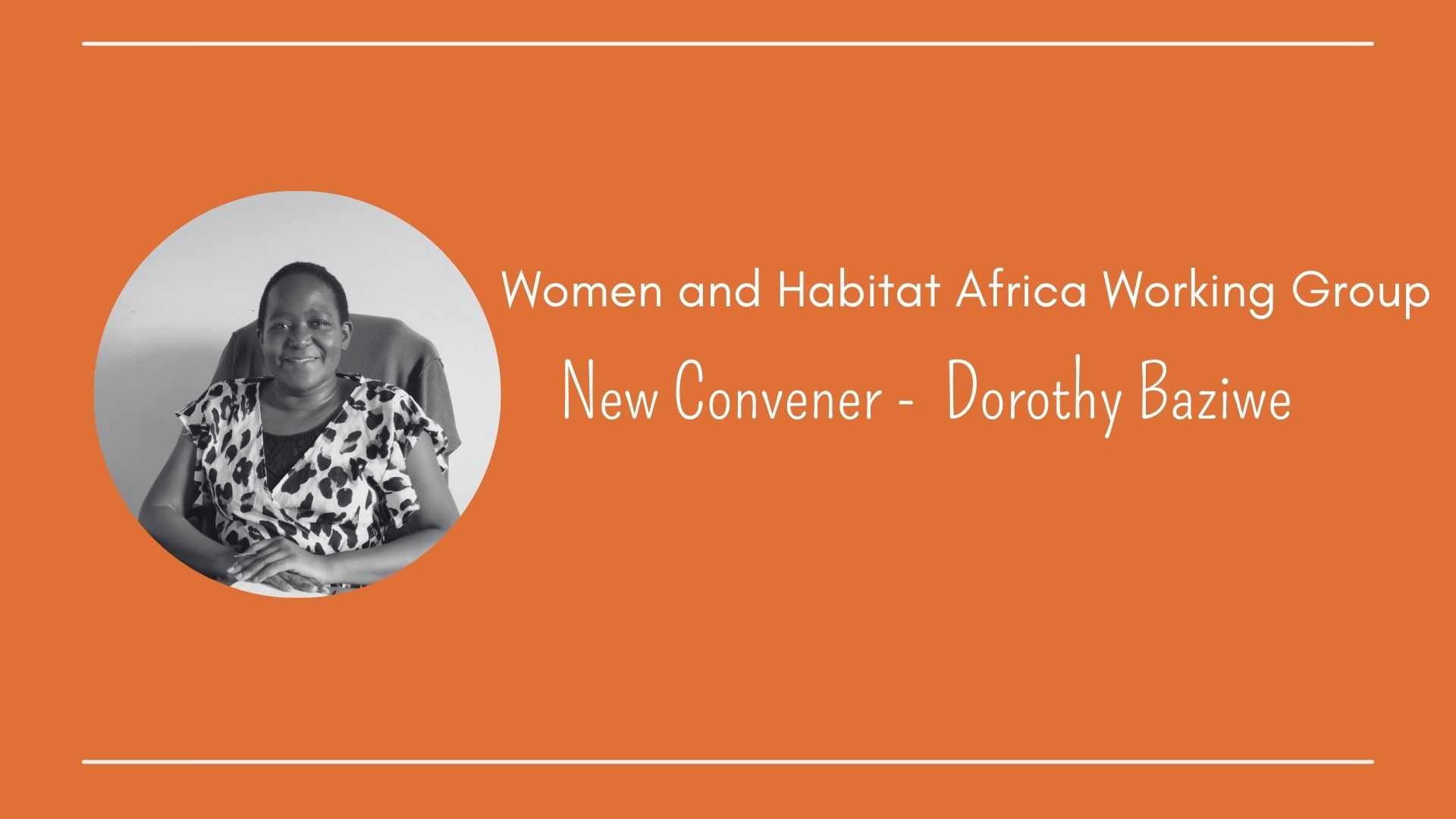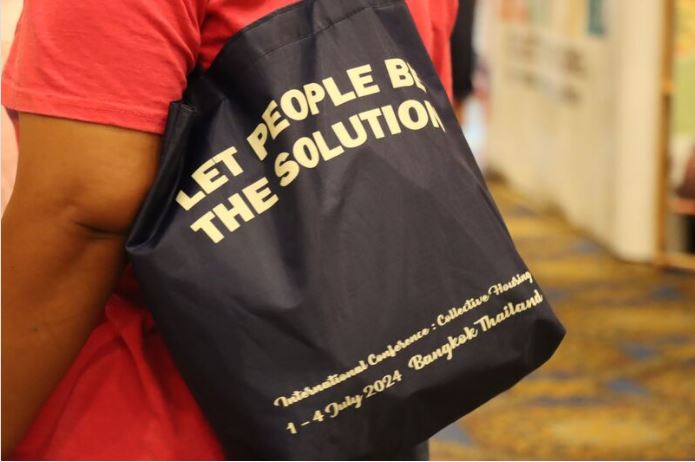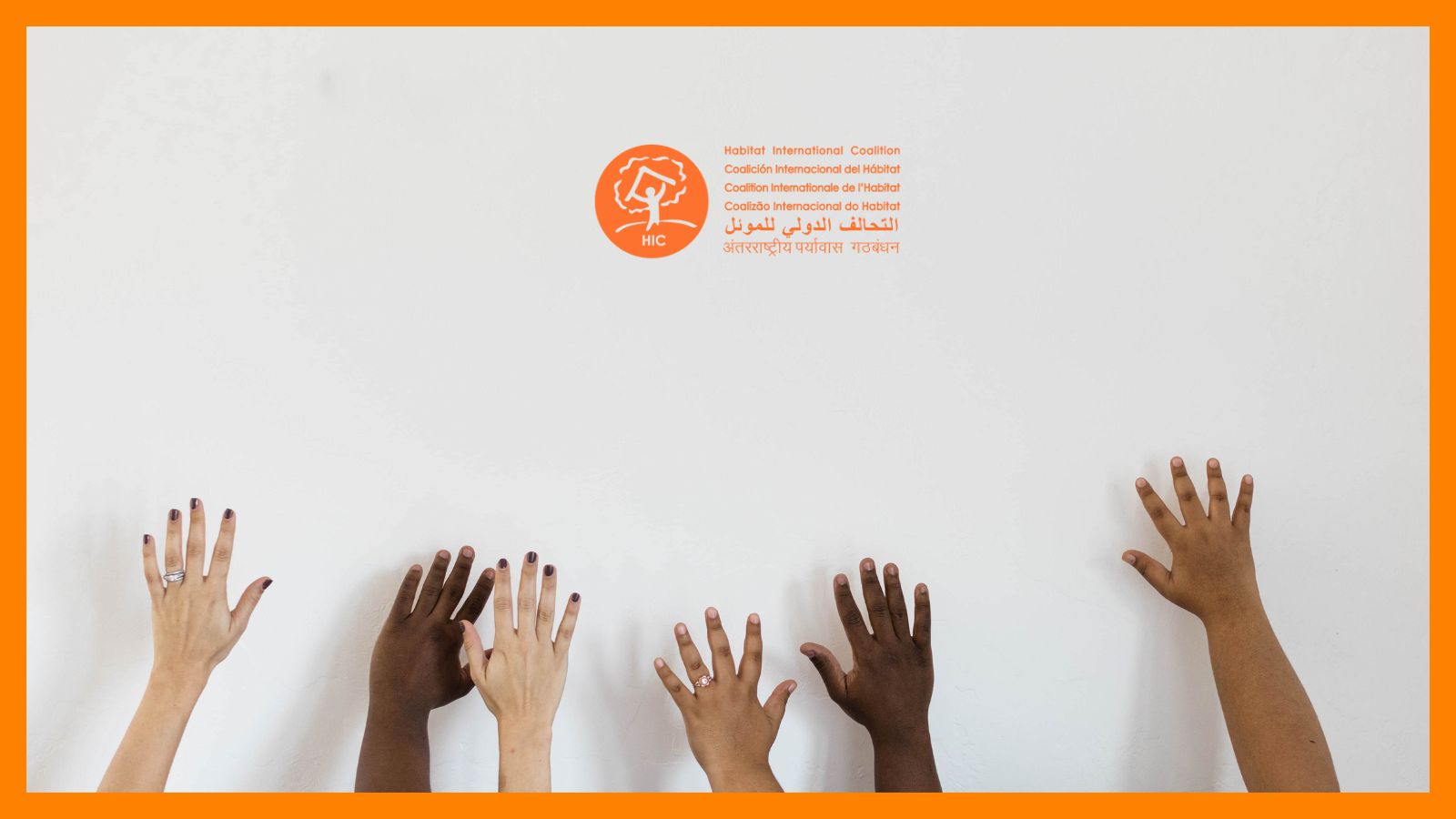Habitat International Coalition has played an active role in the Habitat II Conference as well as in the simultaneous NGO Forum. Several of its suggested amendments were incorporated in the Habitat Agenda. As a follow-up to the Conference, the European Section of HIC has, among other things, made an inquiry into and organized a conference on The Role of Popular Movements in the Renewal of Historic City Centers, taken the initiative for an expert meeting on Monitoring the Implementation of the Habitat Agenda and the Use of Indicators and made an inquiry among European NGOs/CBOs about the implementation of the Habitat Agenda.
The follow-up of Habitat II
Looking back to the Habitat II Conference one can note that it was generally recognized that the first responsibility for trying to achieve the goals of adequate housing for all and sustainable human settlements rested with individual countries. The role of the United Nations was mainly one of stimulating and coordinating national efforts and providing assistance in the form of exchange of information and capacity building. Financial assistance could only be provided to a very limited amount.
In order to give a new impetus to habitat activities, governments were asked to set up National Habitat Committees which would, besides government representatives, include representatives of local authorities, non-governmental organizations and associations, professional bodies and private industry. These Committees were to draft, execute and monitor National Plans of Action for the implementation of the Habitat Agenda.
In several European countries such Committees were set up in preparation for the Habitat II Conference and they played a role in formulating national reports submitted to the Conference. In practice it turned out that the intended objective of the Committees. Was difficult to fit within the existing decision-making structure for habitat matters. These matters are the domain of different ministries which, either or not in consultation with local authorities and representatives of civil society, draft their own plans and submit them for approval to parliament. Local and regional authorities also have their own procedures for drafting and executing plans and programs. It is not surprising, therefore, that many National Committees have ceased to exist or no longer meet. In addition. it should be emphasized that, in spite of the commitments undertaken by individual governments and the role played by the European Union in Istanbul, too few national committee have admitted the presence of civil organizations. The same can be said about the inclusion of NGOs/CBOs representatives in national delegations to the 17th session of the Commission on Human Settlements.
One of the few exception is the Habitat Platform in the Netherlands which promotes the implementation of the Habitat Agenda, among other things through action at the local and neighborhood levels.
Implementation in Europe
It is difficult to obtain a picture of the degree to which the commitments and recommendations of the Habitat Agenda have been implemented in the countries of Europe. One of the reasons is that a number of activities which are going on in the field of habitat are not identified as implementation of the Habitat Agenda. Especially in the more affluent countries of Europe many of the recommendations had already been implemented before Habitat II and in an ongoing process of legislation and institutionalizing they are being further refined. As is mentioned in last years report of the UN Economic Commission for Europe on the follow-up of Habitat II, the Conference is considered as just another meeting and every day work in the ministries and town halls concerned is not necessarily connected with the Habitat II process. The Habitat Agenda is not understood as a booster in the housing sector.
Unresolved problems
The afore-mentioned does not mean that there are no serious problems in the housing and human settlements field in Europe. Even in the relatively wealthy 15 member-countries of the European Union there is a lack of adequate housing. It is not surprising, therefore, that the pressure on the European Union to be more directly involved in urban and habitat policies is increasing (1).
In terms of bad housing conditions it can be estimated that at least (2) :
![]() 3 million people in these countries are homeless or have no fixed home of their town
3 million people in these countries are homeless or have no fixed home of their town
![]() 15 million people live in severely substandard or overcrowded accomodation
15 million people live in severely substandard or overcrowded accomodation
There are no signs that these numbers are decreasing. One reason is that the number of single people is growing because of an increase of divorces combined with a longer life expectancy.
In terms of housing insecurity and housing stress it may be estimated that:
![]() 1,6 million people are under eviction procedures (3)
1,6 million people are under eviction procedures (3)
![]() 400.000 people are evicted each year
400.000 people are evicted each year
Major trends such as globalization, industrial restructuring and the introduction of new technologies have brought about large reductions in the number of fixed full-time jobs. Millions of redundant workers have been forced to depend on social welfare or to take insecure low-paid jobs. As a result growing numbers of people are to be found living in poverty.
While more people are dependent on social welfare, the levels of welfare benefits have in most European countries tended to fall in relation to average incomes. At the same time the conditions under which benefits are made available have been tightened. Simultaneously, as a result of a policy of privatization and commercialization, there has been a general decline in the provision of social housing by public bodies and non-profit associations. In some countries the supply of social housing has been reduced because of its sale to the occupants or private landlords. While there exists a general scarcity of affordable houses for low- or non-income groups, in several countries a considerable number of houses remain unoccupied.
On the average, the countries of European Union devote 22% of their GPD to social security (4). Housing accounts for less than 5% of this expenditure.
This inadequacy of supply in relation to demand bring about a general increase in rents. For example, in Belgium during the past seven years, rents have increased by 24%. In Germany, when rents have risen by 30% since 1992. During the same period public subsidies for housing construction have decreased by 30%.
During the 1990s, there has been a decrease in investment in housing (5) and under the pressure of the converging criteria for the Economic and Monetary Union, this trend appears to be being continuing.
Vulnerable groups
While youth unemployment is especially high in most countries, young adults often have reduced rights in terms of access to welfare benefits, including payments to cover housing costs. Young people who are without parental support are more likely to become homeless.
Also the elderly, society’s other weak generation segment, are increasingly forced to face habitat problems, specially when they are without family support, because of decreasing economic resources due to the cutbacks in pensions and social services.
For those people who face problems related to mental health, drugs or alcohol there has been a shift away from institutional care towards community-based services. However, resources allocated to these services are often not sufficient to allow for a proper response to the specific needs of individuals, particular in terms of housing provision.
Women may find themselves at risk of becoming homeless as a result of separation or divorce, especially if they need escape from domestic violence. Meanwhile, increasing numbers of women and children are living as lone parent families, often with incomes that are too low to provide access to decent housing.
Although in recent years progress has been made in providing easier access of houses and public buildings to the physically handicapped, this group of people is still far from being fully integrated in the community on a basis of equality.
Another vulnerable group is that of migrants. They often belong to the poorest segments of society and need special care in the fields of housing, education and health. The main problems they are facing are the lack of resources to have access to adequate housing, the xenophobia and racism, the bureaucratic obstacles to obtain social housing and the increasing creation of ghettos in the more degraded and less secure areas of the city.
As a result of the open armed conflicts in the Balkans, and of other, more hidden, conflicts like those occurring in Kurdistan, the number of refugees is likely to increase dramatically and a coordinated effort is needed to come to their help.
In all European countries there has been traditionally a notable difference in the health situation and longevity between different neighborhoods in one city, but the gap between poor and rich inhabitants has in the last years increased considerably. In many cities ghettos of deprived people have come into existence.
In the countries in transition in Central and Eastern Europe the housing situation is still more disturbing. In the 1997 session of the Committee on Human Settlements of the UN European Commission for Europe, where an exchange of views took place on the restructuring in Central and Eastern Europe, the general opinion was that the ruthless introduction of the market principle in the housing field has had disastrous social consequences. Still today, the transition to a new economic system is not being accompanied by an adequate social security system. Only the rich are able to profit from the little activity which is taking place in the building sector. An additional problem is the absence of a strongly organized civil society which can come to the assistance of the affected people and can act as their advocate in defending their rights in front of the decision-makers.
The position of NGOs and CBOs
Many NGOs and CBOs in the field of human settlement are actively implementing one or more recommendations of the Habitat Agenda without publicizing it or even without being aware of it. They have in many cases been fighting for years to realize them; examples are equal rights for women and housing rights for all. Habitat II has opened a new perspective to these NGOs because governments have confirmed the urgency of such goals and committed themselves to work for their implementation.
As a follow-up to Habitat II NGOs and CBOs have to continue to pursue their goals with renewed energy, constantly improving their working methods, promoting the exchange of experiences and learning from each other. At the same time they have to carry out their traditional role of watchdogs, reminding governments of the solemn promises they made in Istanbul. One of their tasks is also to provide periodical Reports to the UN Committee on Economic, Social and Cultural Rights which monitors the implementation of the right to adequate housing.
The European Section of Habitat International Coalition confirms its readiness to cooperate with Habitat and its reinforced Maison de l’Habitat in Geneva to spread knowledge about the Habitat Agenda in Europe and promote its implementation. It plans to establish a European Urban Observatory from which several activities will be undertaken like a permanent monitoring of the follow-up to Habitat II, organizing a campaign for making unused houses available to homeless people and other conferences.
Recommendations
We strongly recommend that the governments meeting in the 17th session of the UN Commission on Human Settlements:
![]() individually and collectively give special attention to the large-scale spreading of information on the Habitat Agenda, among other things by publishing popular versions in several languages;
individually and collectively give special attention to the large-scale spreading of information on the Habitat Agenda, among other things by publishing popular versions in several languages;
![]() promote that the activities to implement the Habitat Agenda at the local, national and regional level are as much as possible integrated with those for Local Agenda 21, as well as with the implementation of article 11 (Housing Rights) of the International Covenant on Economic, Social and Cultural Rights;
promote that the activities to implement the Habitat Agenda at the local, national and regional level are as much as possible integrated with those for Local Agenda 21, as well as with the implementation of article 11 (Housing Rights) of the International Covenant on Economic, Social and Cultural Rights;
![]() encourage the participation of NGOs and CBOs by supporting projects such as the exchange of “best practices” and “learning practices”, independent monitoring of the Habitat Agenda and the formation of partnership at the local, national and international level;
encourage the participation of NGOs and CBOs by supporting projects such as the exchange of “best practices” and “learning practices”, independent monitoring of the Habitat Agenda and the formation of partnership at the local, national and international level;
![]() issue strong directives about an effective monitoring system and a simple set of related indicators as a clear demonstration that the implementation of the Habitat Agenda is taken seriously.
issue strong directives about an effective monitoring system and a simple set of related indicators as a clear demonstration that the implementation of the Habitat Agenda is taken seriously.
Cesare Ottolini, Han Van Putten,
Padova – Den Haag, May 1st 1999
(1) European Union’s Framework for Action on Sustainable Urban Development, Report adopted on 22 April 1999 by the Committee on Regional Policy of the European Parliament
(2) EUROSTAT, 1997; Dragana Avramov, Youth Homeless in the European Union, Brussels 1998; FEANTSA, Europe Against Exclusion, Brussels 1999
(3) For example, in Italy there are more than 800.000 peoples under eviction procedures, said Ministry for Interiors in 1998
(4) European Commission, 1996
(5) Report from the University of Glasgow to the European Parliament, 1996


